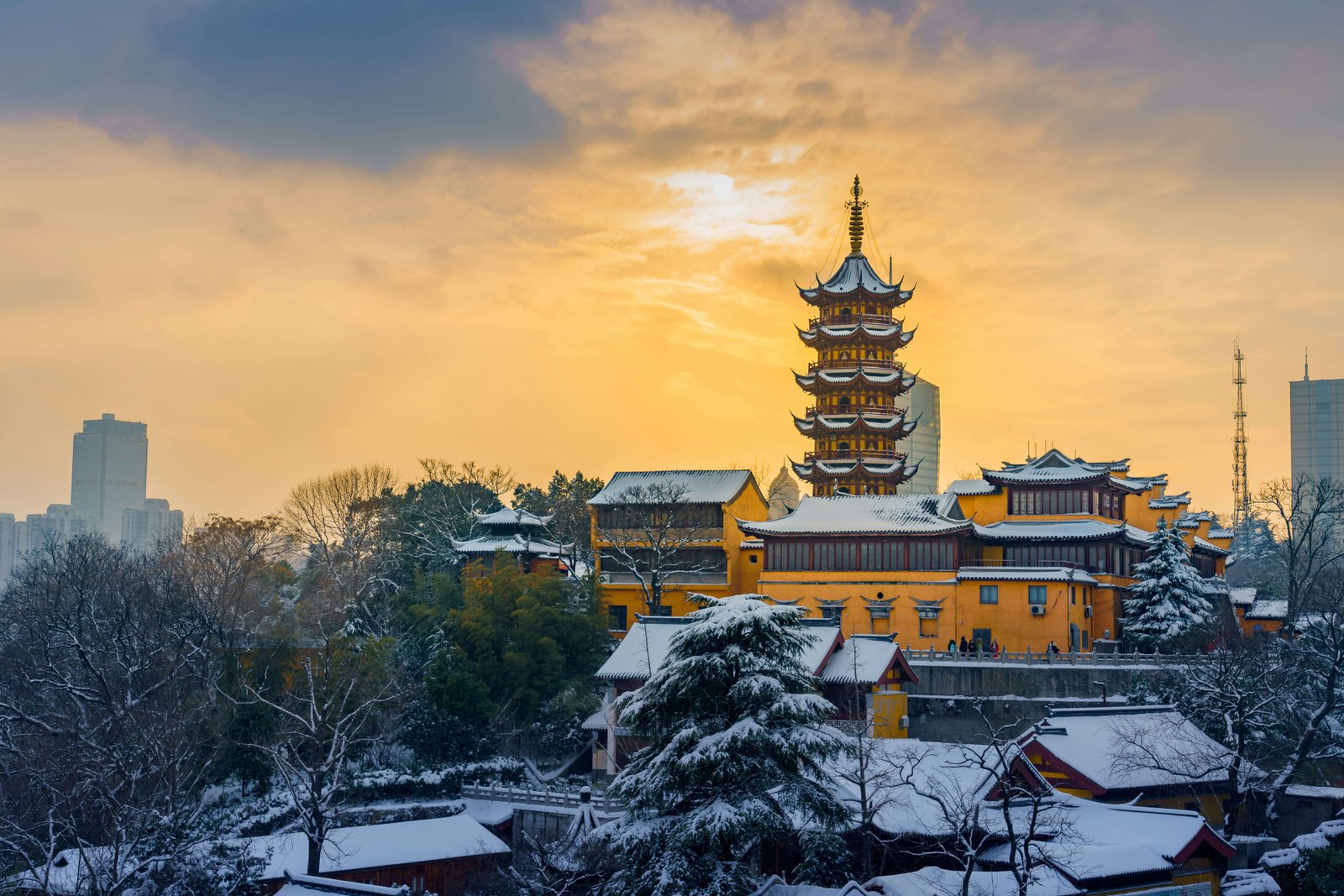Nanjing city
Overview: Nanjing, located in Jiangsu Province, is a city with a rich historical legacy and has served as the capital of several Chinese dynasties. Known for its historical significance, cultural landmarks, and picturesque landscapes, Nanjing is an important cultural and educational center in China. The city’s blend of historical sites and modern amenities makes it a compelling destination for visitors.
Historical Significance: Nanjing has a storied history as a former capital of the Ming Dynasty and the Republic of China. The Sun Yat-sen Mausoleum, situated on the slopes of the Purple Mountain, is a major landmark dedicated to Sun Yat-sen, the founding father of modern China. The mausoleum features a grand staircase, a towering monument, and panoramic views of the city. The Nanjing Yangtze River Bridge, completed in 1968, is an engineering marvel and an important symbol of modern China’s industrial progress. The Nanjing Massacre Memorial Hall serves as a sobering reminder of the atrocities committed during World War II and is dedicated to the memory of the victims.
Modern Attractions: Nanjing offers a mix of historical and contemporary attractions. The Nanjing Museum, one of the largest museums in China, features exhibits on the city’s history, art, and culture. The Confucius Temple Area, located along the Qinhuai River, is a historic district known for its traditional architecture, bustling markets, and vibrant cultural scene. The Purple Mountain Scenic Area encompasses several attractions, including the Ming Xiaoling Mausoleum, a UNESCO World Heritage site, and the Nanjing Botanical Garden, which offers a diverse range of plant species and scenic landscapes.
Culture and Lifestyle: Nanjing is renowned for its rich cultural heritage and traditional cuisine. Local dishes such as salted duck and duck blood soup reflect the city’s culinary traditions. The city’s historic sites, cultural events, and vibrant street life provide a deep connection to China’s past and present. Nanjing’s blend of historical landmarks, modern development, and cultural experiences makes it a fascinating destination for travelers interested in exploring China’s cultural and historical legacy.
